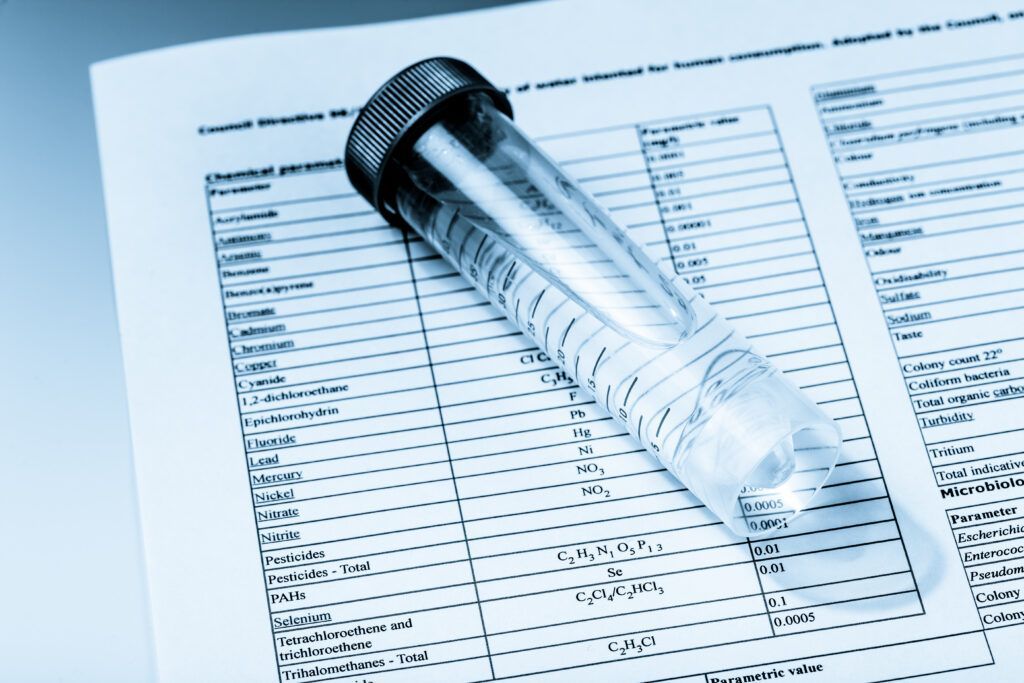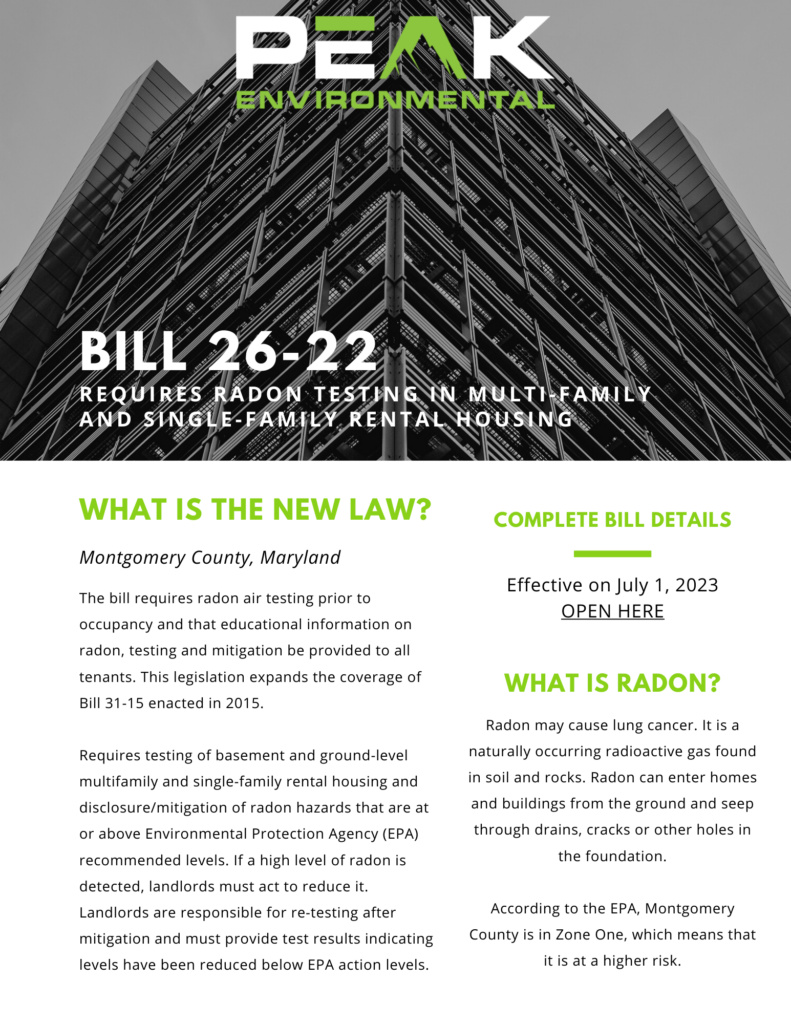Radon Testing in Maryland 2023: Tips for Staying Compliant and Protecting Your Property

Radon Law Maryland 2023:
As a resident of Maryland, you may be aware of the potential risks posed by radon gas. Radon is a naturally occurring radioactive gas that can seep into homes and buildings and pose a serious threat to your health. In fact, according to the Environmental Protection Agency, radon is the second leading cause of lung cancer in the United States. That’s why it’s crucial to regularly test your home for radon levels and take the necessary steps to mitigate any potential risks. In this article, we’ll provide you with some valuable tips on how to stay compliant with Maryland’s radon testing laws and how to protect your health and the health of your loved ones. So, whether you’re a homeowner or a landlord, read on to learn more about radon testing in Maryland and how you can keep your home safe from this dangerous gas.
New Radon Bill 26-22 in Maryland
If you’re a homeowner or a landlord in Maryland, it’s important to stay up to date with the latest radon testing regulations. Recently, the state passed a new radon bill, 26-22, which requires all new residential construction to have radon-resistant features, such as a vapor retarder and a passive radon venting system. These features can help prevent radon from seeping into your home and reduce your risk of exposure. In addition, the new law requires testing of basement and ground-level multifamily and single-family rental housing and disclosure/mitigation of radon hazards that are at or above Environmental Protection Agency (EPA) recommended levels. Landlords are responsible for conducting the test and providing their tenants with the results. If radon levels are found to be above the action level of 4 pCi/L, landlords are required to mitigate the problem within six months. Failure to comply with these regulations can result in fines and penalties.
Other Radon Testing Regulations in Maryland
Maryland has several other regulations in place for radon testing. For example, As of October 1, 2016, County law requires that “a single-family home located in the County must be tested for radon before completing a sale of the home.” This requirement is contained in Chapter 40 of the County Code, as amended by County Bill 31-15. Which Means all real estate transactions in Montgomery County require a radon test to be conducted and the results disclosed to the buyer. This includes homes, apartments, and condos. If radon levels are found to be above the action level, the seller is required to mitigate the problem before the sale can be completed.
Additionally, all public and private schools in Maryland are required to test for radon levels every five years. This is to ensure the safety of students and staff who spend a significant amount of time in these buildings. If elevated levels of radon are found, the school district must take action to mitigate the problem.
When To Test For Radon
Radon testing should be done regularly to ensure the safety of your home and family. The best time to test for radon is during the fall or winter months when windows and doors are closed and your home is sealed up. This will give you a more accurate reading of the radon levels inside your home. If you’re buying a new home or moving into a rental property, it’s important to request a radon test before you sign the lease or finalize the sale. This will give you peace of mind knowing that your new home is safe from radon exposure.
Conclusion:
Regular water testing is vital to safeguarding your health and ensuring the purity of your drinking water. In Maryland, where both well water and city water can be prone to various contaminants, it’s essential to stay informed about common water contaminants and comply with the state’s water testing requirements. By partnering with trusted professionals like Peak Environmental, you can take proactive steps to identify and address potential water quality issues, ensuring a safe and healthy water supply for you and your family.
Remember, knowledge is the first step toward protecting your health, and regular water testing is the key to peace of mind.
Radon testing methods and equipment
There are several types of radon testing methods and equipment available, including short-term tests, long-term tests, and continuous radon monitors. Short-term tests typically last for two to seven days and provide a quick snapshot of your home’s radon levels. Long-term tests, on the other hand, can last for up to a year and provide a more accurate reading of your home’s radon levels over time. Continuous radon monitors are the most advanced and accurate form of radon testing equipment. These devices measure the levels of radon gas in your home on a continuous basis and can provide real-time data on your home’s radon levels. This can be useful for homeowners who want to monitor their radon levels on an ongoing basis and ensure that their mitigation system is working properly
Top 5 Takeaways:
- Maryland has specific regulations, including the new Radon Bill 26-22, which mandates radon-resistant features in new residential construction and testing of rental housing.
- Compliance with Maryland’s radon testing laws, such as disclosing radon hazards and conducting tests for rental properties, is essential for homeowners and landlords to avoid penalties and protect occupants’ health.
- Testing for radon should be done during fall or winter when homes are sealed up, providing more accurate results.
- If radon levels are found to be high, consult a radon mitigation specialist for appropriate measures, such as installing ventilation systems.
- Different radon testing methods and equipment are available, including short-term tests, long-term tests, and continuous radon monitors.
Remember, the new radon laws in Maryland, like Radon Bill 26-22, reinforce the importance of radon testing and mitigation. By staying compliant with these regulations, you can ensure the safety of your home and protect the health of your loved ones from the dangers of radon gas.
Disclaimer: The information on this website and blog is for general informational purposes only and is not professional advice. We make no guarantees of accuracy or completeness. We disclaim all liability for errors, omissions, or reliance on this content. Always consult a qualified professional for specific guidance.
Search Blog
Recent Posts



